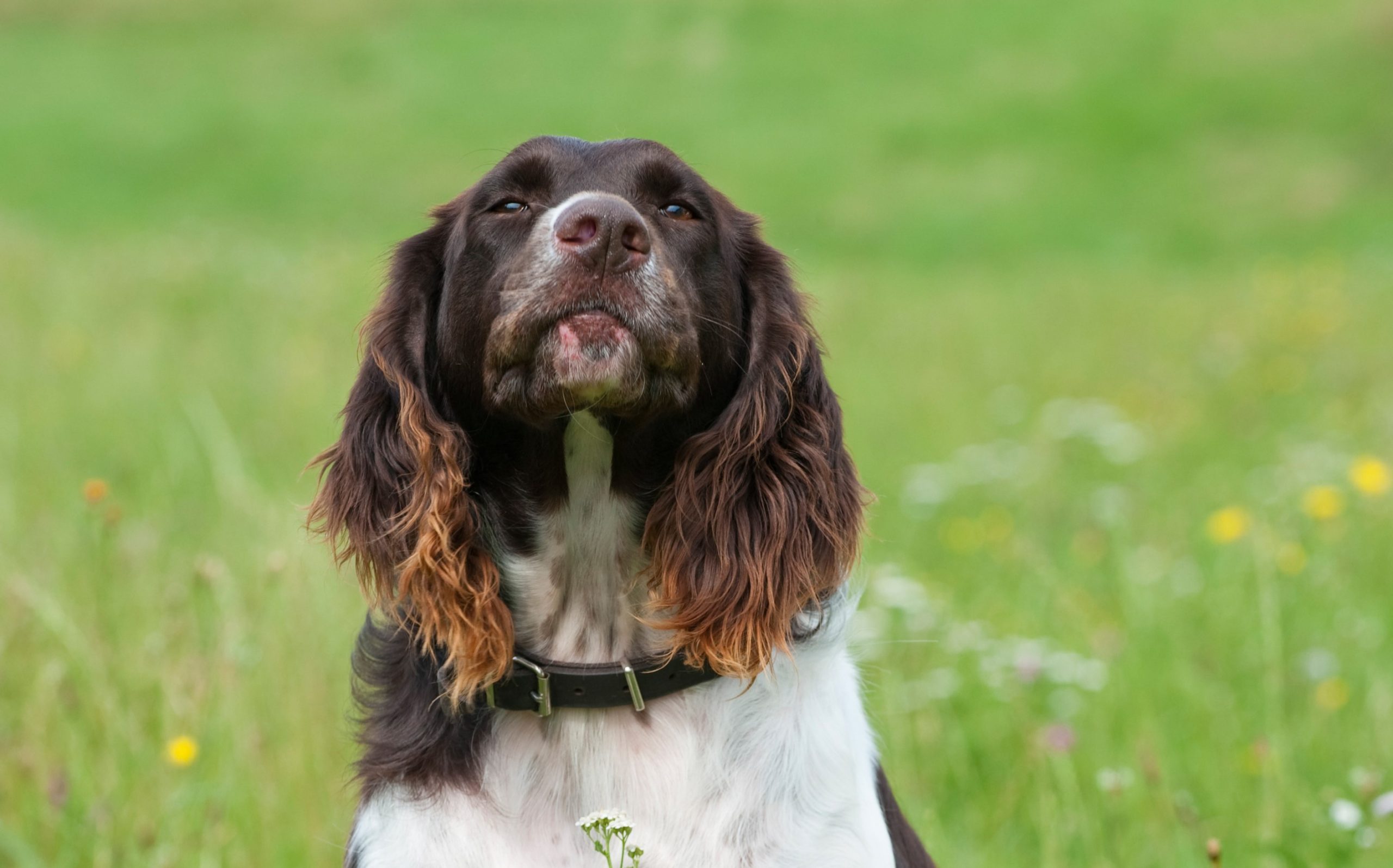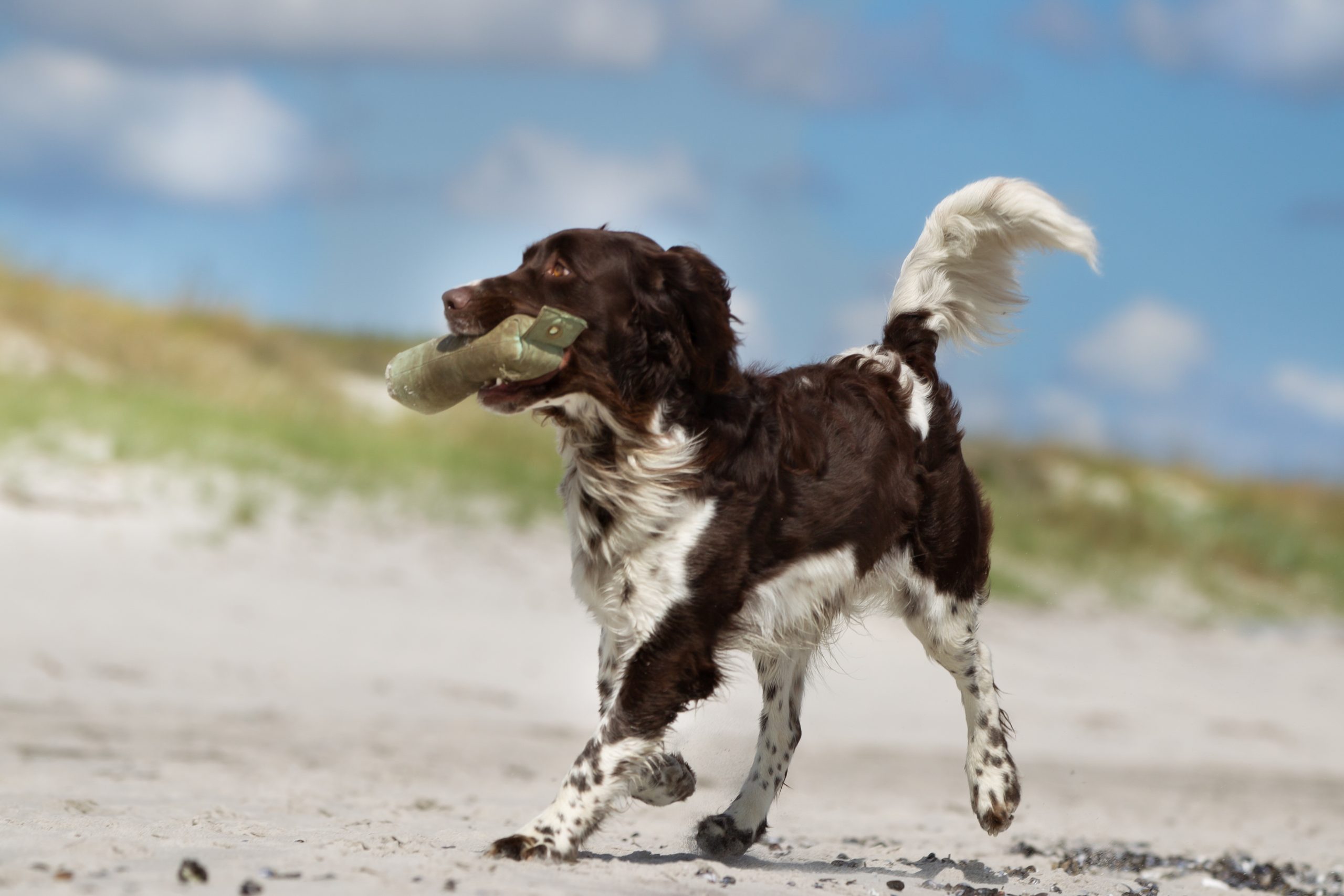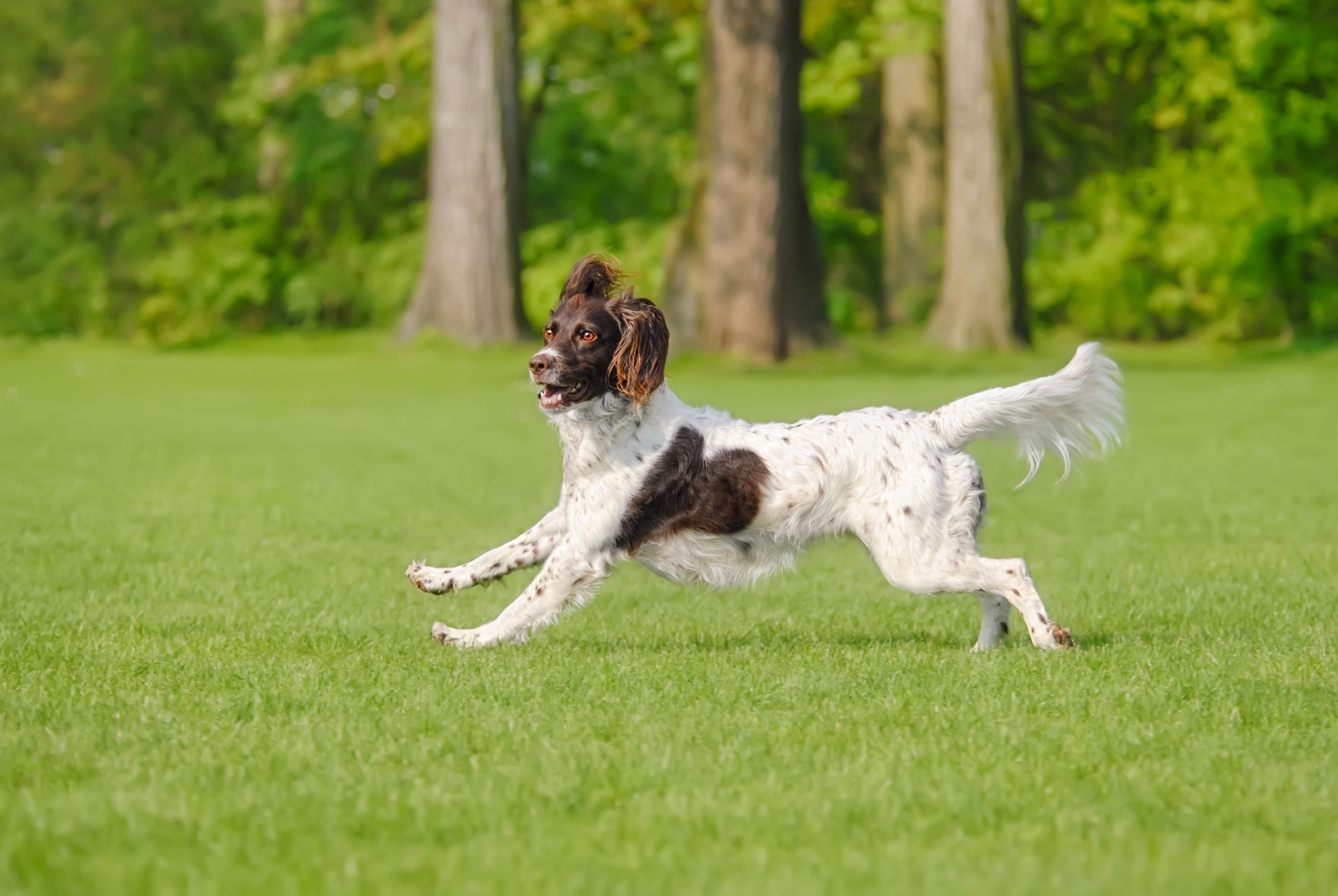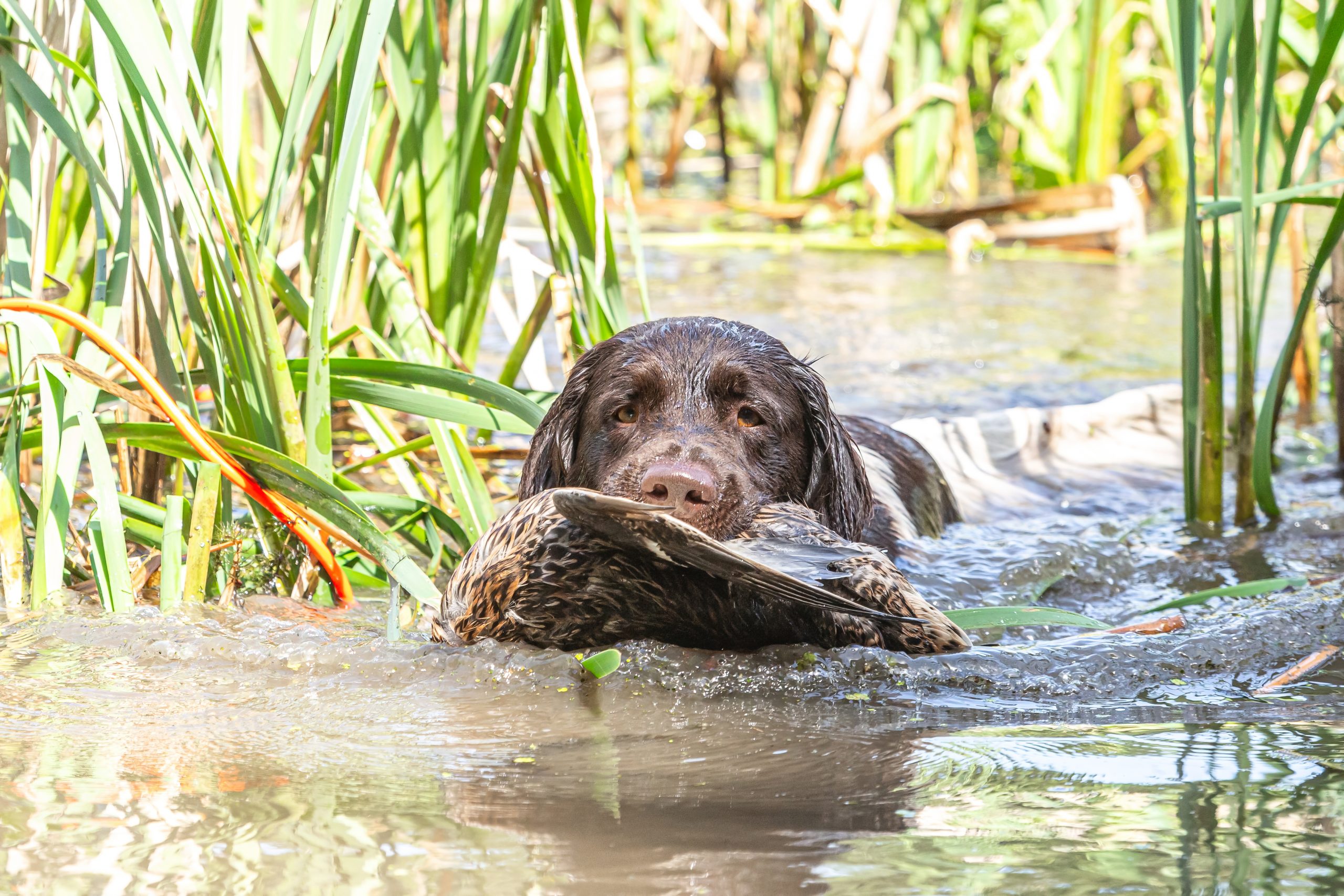Small Munsterlander
No products found which match your selection.
Shelter Dog Meal Donation Count:
No products found which match your selection.
The Small Munsterlander is a versatile and intelligent breed that excels in both the field and as a family companion. With their high energy level and eagerness to engage in activities, they are well-suited for active families or individuals who enjoy outdoor adventures. Their affectionate nature and loyalty make them excellent companions, while their trainability and intelligence make them a joy to work with in training scenarios. Regular grooming and exercise are essential to keep them happy and healthy. Overall, the Small Munsterlander is a wonderful choice for those seeking a capable sporting dog and a devoted family member.
Small Munsterlanders are not just hunting dogs; they are also beloved family members. They thrive on human companionship and are known to be good with children and other pets. Their versatility makes them suitable for various living environments, provided they get enough exercise.

Originally from Germany, the Small Munsterlander has a rich history as a hunting dog, prized for its tracking, pointing, and retrieving abilities. They were bred to be all-around hunting partners, capable of working in both water and land.




While generally healthy, they can be prone to hip dysplasia, entropion, and ear infections. Regular veterinary check-ups are essential to maintain their health.
Their coat requires regular brushing to prevent matting. Bathing should be done as needed, and ear cleaning is vital to prevent infections.
They need ample exercise to satisfy their high energy levels. Activities like running, hiking, and swimming are ideal.
Training should be consistent, positive, and engaging. They respond well to reward-based training methods and enjoy mental stimulation.
A balanced diet suitable for their age, size, and activity level is crucial. It's recommended to consult with a veterinarian for personalized dietary advice.
The Small Munsterlander is a versatile, intelligent, and affectionate breed. They make excellent companions for those willing to invest time in their training, exercise, and care. Their rich history and unique characteristics make them a fascinating and rewarding breed to own.
The Small Munsterlander, while generally a healthy breed, is predisposed to certain health conditions. Regular health checks and preventative care can help maintain their well-being. Here are some common health issues and recommended tests:
In addition to these specific tests, maintaining a healthy diet, regular exercise, and routine veterinary care are essential for the overall health and well-being of a Small Munsterlander. It's also recommended to keep a close eye on their behavior and physical condition, as early detection of issues can significantly improve the outcome of treatments.
The iHeartDogs Free Rx Discount Card Program is a pet prescription discount card that can help you save money on your furry friend’s medications. The card is free to sign up for, and you can use it at participating pharmacies nationwide. To use the free program, simply show the card to your pharmacist when you pick up your pet’s prescription. The pharmacist will then scan the card, and you will receive a discount on the price of the medication.LEARN MORE
Caring for a Small Munsterlander, like any dog, involves various expenses. The annual cost can vary depending on several factors including location, the dog’s health, and the level of care provided. Here’s a breakdown of the typical expenses:
Total Estimated Annual Cost:
$3400 - $9400
It's important to note that these figures are estimates and can vary. Also, the first year of owning a dog can be more expensive due to one-time costs like spaying/neutering, initial vaccinations, and training. Regular budgeting for your dog's needs and an emergency fund for unforeseen costs are essential for responsible pet ownership.